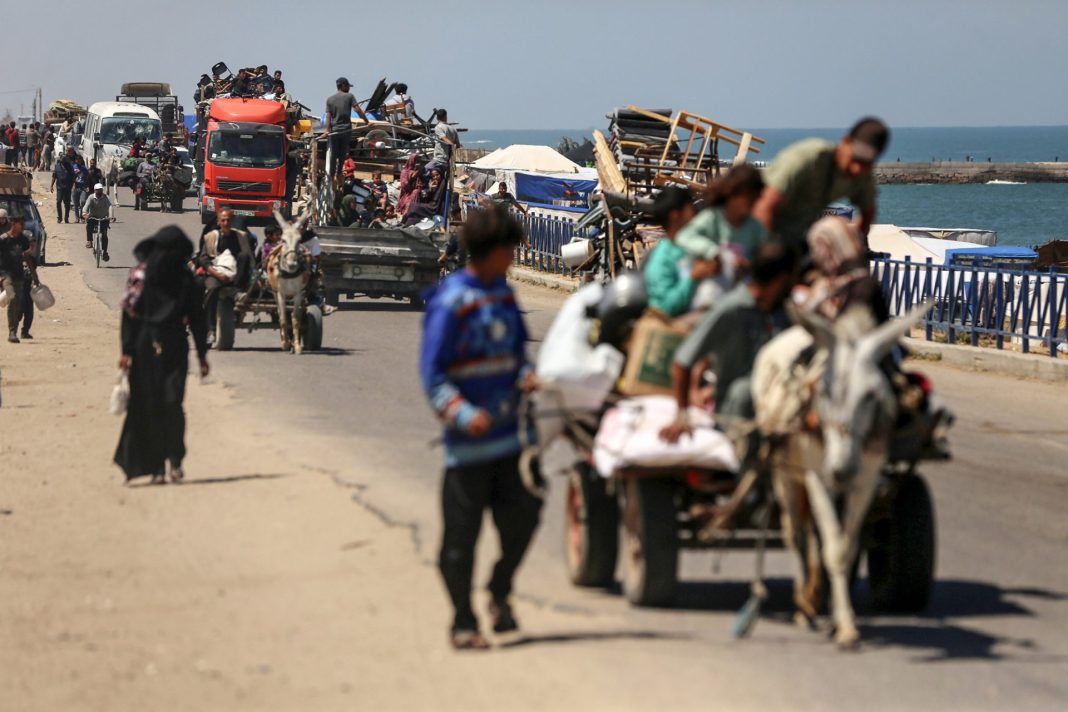Farhan Haq, a spokesperson for UN Secretary-General Antonio Guterres, gave the figures during his office’s daily news briefing.
“As of today, some 600,000 people, a quarter of Gaza’s population, have been displaced from Rafah since the 6th of May as the Israeli ground operation there continues,” he stated.
Additionally, the UN’s Office for the Coordination of Humanitarian Affairs has issued a flash update on the displacement of Palestinians from the southern Gaza city.
“On 14 and 15 May, the Israeli military issued two new evacuation orders for all or part of 19 neighbourhoods in northern Gaza, bringing to five the number of orders issued since 6 May in Rafah and northern Gaza”, the update said.
Of the nearly 600,000 displaced since May 6, UN figures say, approximately 150,000 of that number have fled Rafah in the past 48 hours.
The Israeli army continues to move ground troops into Rafah, despite warnings from the US and others among its closest allies.
More than 35,000 Palestinians have since been killed in Gaza, mostly women and children, and 79,000 others injured, according to Palestinian health authorities.
Over seven months into the Israeli war, vast swathes of Gaza lay in ruins, pushing 85% of the enclave’s population into internal displacement amid a crippling blockade of food, clean water, and medicine, according to the UN.
Israel stands accused of genocide at the International Court of Justice. An interim ruling in January said it is “plausible” that Israel is committing genocide in Gaza and ordered Tel Aviv to stop such acts and take measures to guarantee that humanitarian assistance is provided to civilians in Gaza.
